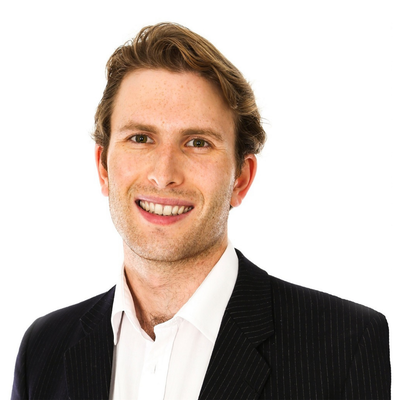#51: The Art/Science of a High Impact Career – Rob Wiblin

Most people want to help others with their career, but what’s the best way to do that? Become a doctor? A politician? Work at a non-profit? How can any of us figure out the best way to use our skills to improve the world?
Rob Wiblin is the Director of Research at 80,000 Hours, an organisation founded in Oxford in 2011, which aims to answer just this question and help talented people find their highest-impact career path. He hosts a popular podcast on ‘the world’s most pressing problems and how you can use your career to solve them’.
After seven years of research, the 80,000 Hours team recommends against becoming a teacher, or a doctor, or working at most non-profits. And they claim their research shows some common careers do 10 or 100x as much good as others.
80,000 Hours was one of the organisations that kicked off the effective altruism movement, was a Y Combinator-backed non-profit, and has already shifted over 80 million career hours through its advice.
Joe caught up with Rob in Berkeley, California, to discuss how 80,000 Hours assesses which of the world’s problems are most pressing, how you can build career capital and succeed in any role, and why you could easily save more lives than a doctor – if you think carefully about your impact.
Show notes
Selected links
- Follow Rob Wiblin: Podcast | Twitter | Website
- 80,000 Hours website.
- GiveWell, the charity evaluator.
- Peter Singer’s essay Famine, Affluence, and Morality.
- The Future of Humanity Institute, the Centre for Effective Altruism, and Giving What We Can – all part of the effective altruism ecosystem and all based at Oxford University.
- The original lecture at Oxford by 80,000 Hours cofounders Ben Todd and Will MacAskill, which caused a quarter of the audience to immediately change their life plans.
- Superforecasting, by Philip Tetlock.
- The availability heuristic.
- An overview of the 80,000 Hours framework for selecting a cause.
- Rob Wiblin on why the framework should be applied with care.
- Enlightenment Now, by Steven Pinker.
- Superintelligence, by Nick Bostrom.
- The ‘Concrete Problems in AI Safety’ paper.
- Which career is right for you? Part 8 of the 80,000 Hours Career Guide.
- The 80,000 Hours mistakes page.
- How to build career capital, Part 7 of the 80,000 Hours Career Guide.
- Deep Work, by Cal Newport.
- Freedom – block apps and websites on your devices.
- Reasons and Persons, by Derek Parfit.
- Rob’s anti-ageing videos: Why Die? by CGP Grey and Why Age? by Kurzgesagt.
- 80,000 Hours Podcast episodes with Will MacAskill, Holden Karnofsky and Philip Tetlock.
- How to be successful in any career, Part 3 of the 80,000 Hours Career Guide
- The Effective Altruism Handbook.
- EAGx Conference, Melbourne 2018, 14-15 July: apply here.
Topics discussed
- The threads that combined to form Effective Altruism. [4:42]
- How did Rob find his way into the effective altruism movement? [6:49]
- Why are there so many prominent Australian effective altruists? [10:18]
- What inspired the name ‘80,000 Hours’? [15:56]
- What does 80,000 Hours actually do? [17:00]
- Why 80,000 Hours was founded and the story of its beginnings. [18:57]
- The impact you could have – and the lives you could potentially save – over the course of your career. [21:25]
- Do 80,000 Hours’ clients tend to be utilitarians? [24:20]
- Which cause areas have 80,000 Hours selected as the topics we should work on to have a maximum impact? [30:43]
- The criteria 80,000 Hours uses to assess problems. [37:58]
- Why are so many cause areas focused on human existential risks? [42:04]
- The mathematical framework around the cause area criteria. [47:44]
- The question of Artificial Intelligence. [49:35]
- How to work out whether you personally fit a particular career. [54:40]
- Has any of 80,000 Hours’ career advice changed? [57:49]
- How does Rob think 80,000 Hours’ recommendations will change over the next few years? [1:04:42]
- What advice does Rob have for someone needing to build ‘career capital’? [1:06:59]
- Does maximising your career impact count as ‘altruism’? [1:09:42]
- Where does Rob think the effective altruism movement could improve? [1:11:33]
- Does Rob ever experience regret or status anxiety knowing he could have earned a big salary working in the private sector? [1:15:25]
- How Rob uses Facebook to generate debate and think out loud. [1:16:54]
- Balancing social media with ‘deep work’. [1:20:35]
- Rob’s contrarian beliefs. [1:22:53]
- How to get involved in the effective altruism community. [1:31:31]
